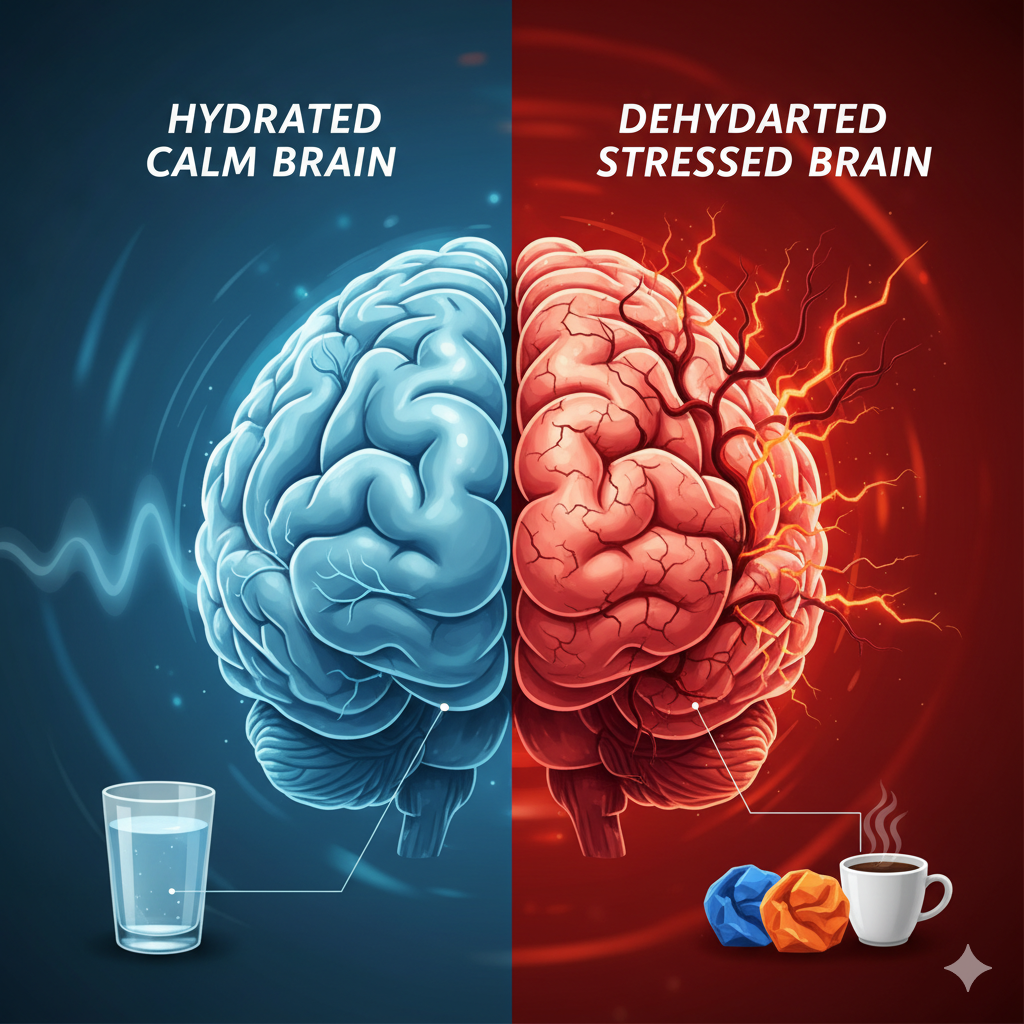Are Your Patients Stressed… Or Just Thirsty? The Cortisol-Hydration Link You Can't Ignore

We’ve all been there. You have a patient who seems to be doing everything right. They're consistent with their home exercise program, you've dialed in their loading strategy, and you've educated them on sleep and nutrition. Yet, their progress has stalled. They're still experiencing high levels of pain, their recovery feels sluggish, and they seem stuck in a state of persistent inflammation.
We rack our brains looking for the missing piece. Is it a psychosocial factor we haven't addressed? Is there an underlying pathology we missed?
What if the answer is simpler? What if it's sitting right there in their water bottle—or lack thereof?
New research is shedding a powerful light on a fundamental, yet often overlooked, factor in our patients' recovery: hydration. A recent 2025 study published in the Journal of Applied Physiology drew a direct and startling line between habitual fluid intake and the body's physiological stress response. Researchers found that individuals who were sub-optimally hydrated showed a significantly exaggerated cortisol spike when faced with a stressor.
For us in the rehab world, that’s a massive red flag. We know that chronically elevated cortisol can sabotage our best efforts by impairing tissue repair, driving inflammation, and amplifying pain perception.
This isn't just about athletic performance; it's about creating the optimal internal environment for healing. Assessing and encouraging proper hydration could be one of the most effective, low-hanging-fruit strategies we have to help manage our patients' physiological load.
To help you and your patients visualize this crucial link, I’ve broken down the study's findings into a simple infographic. Let's take a look...

Dehydration Amplifies the Body's Stress Response
New research reveals a critical link between fluid intake and cortisol reactivity. Here's what PTs need to know.
The Science at a Glance
The Study
Researchers compared adults with habitual low fluid intake to those with high fluid intake when exposed to a psychosocial stressor.
The Key Finding
The low intake group showed a significantly greater increase in cortisol (the primary stress hormone) after the stress test.
Clinical Bottom Line
Suboptimal hydration is directly linked to an exaggerated physiological stress response.

Why This Matters For Your Practice
Chronically elevated cortisol can negatively impact patient outcomes by impairing tissue repair, increasing inflammation, and heightening pain perception. Assessing and encouraging optimal hydration is a simple, non-invasive way to help manage your patients' physiological stress load and potentially improve their recovery.
Ready to Dive Deeper with Evidence-Based Strategies?
Elevate your practice and get the best outcomes for your patients.

